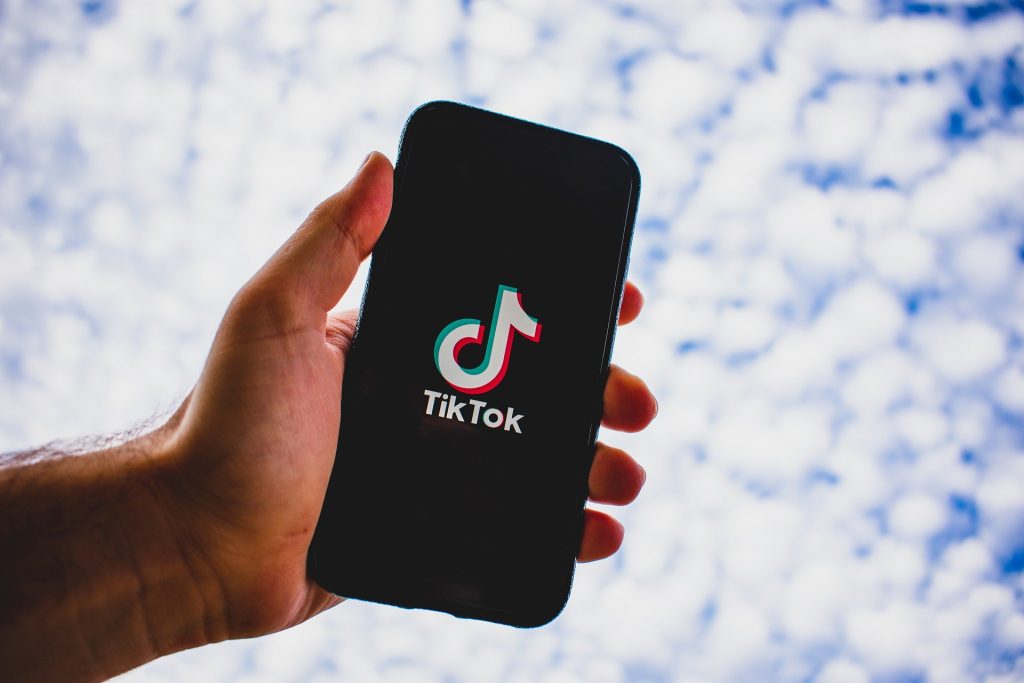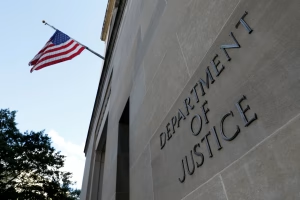TikTok Could Go Dark Tomorrow: What a US Ban Means for Millions of Users.
TikTok, the social media platform that has captured the attention of millions around the globe, may be facing an existential crisis. With national security concerns mounting, a potential ban in the United States looms ever closer. If TikTok is blocked tomorrow, the consequences could extend far beyond just the tech community, shaking the foundations of the digital world as we know it. What would it mean for users, creators, and businesses, and how might this impact the future of social media?
The Growing Threat of a TikTok Ban
The primary reason for the growing push to ban TikTok in the United States is tied to its ownership by ByteDance, a Chinese company. The US government has raised concerns about the vast amount of personal data TikTok collects from its users and the possibility that this data could be accessed or exploited by the Chinese government. Although TikTok has denied these accusations, and the company has taken steps to store US user data in the country to alleviate fears, the spectre of foreign influence on an American platform remains a hot-button issue.
National security experts argue that the Chinese government could potentially use this data for espionage or surveillance purposes, something that is heightened by China’s stringent control over its tech giants. In response to these concerns, lawmakers have pressured TikTok to divest its operations in the US or face a complete ban. But with TikTok’s refusal to comply, the threat of a ban has intensified, leaving many questioning how this will reshape the online landscape.
Impact on Content Creators
If TikTok is banned in the US, the repercussions for content creators could be profound. Influencers, digital stars, and ordinary users have made a career out of their presence on the platform, using TikTok’s algorithmic reach to build large followings and lucrative partnerships with brands. Many have turned TikTok into their primary source of income, leveraging the platform for brand sponsorships, affiliate marketing, and merchandise sales.
The ability to create viral content through TikTok’s short-form videos has given rise to a new wave of micro-celebrities, some of whom have become household names. For these creators, a TikTok ban would mean the loss of their primary audience and platform. With no immediate alternatives offering the same viral potential, creators would face a scramble to either reorient themselves on other platforms like Instagram Reels or YouTube Shorts, or face the possibility of losing their digital livelihood altogether.
What makes TikTok unique is its algorithm, which tailors content to users with a level of precision that no other platform has replicated. This level of personalisation has made it easier for creators to gain visibility and grow their audiences exponentially. Other platforms simply cannot match TikTok's effectiveness at giving new content a chance to be seen by millions. As a result, many content creators would be left with a gaping void in their career trajectories if the app were to be banned.
The Consequences for Small Businesses
TikTok has proven to be a powerful tool for small businesses looking to reach a wider audience. With its highly interactive and engaging content, TikTok allows brands to create marketing campaigns that feel organic, often without the need for large budgets. Small businesses can directly connect with consumers, build communities, and increase brand awareness through creative videos, tutorials, and behind-the-scenes looks at their operations. TikTok’s potential for virality is a unique marketing asset that traditional advertising cannot match.
For businesses that have invested heavily in TikTok as their main form of digital marketing, a ban could be devastating. Losing access to TikTok’s audience would cut off a key revenue stream, forcing these businesses to find alternative means to advertise their products. While platforms like Instagram and YouTube have adopted similar features, none offer the same organic reach and engagement that TikTok does. Without TikTok, small businesses would face a serious challenge in adapting to a rapidly shifting online marketing environment.
Cultural and Social Media Impact
Beyond business and creator-driven concerns, a TikTok ban would also have a massive cultural impact. TikTok has become a digital hub for cultural trends, music discoveries, memes, and grassroots movements. The app has given voice to a diverse range of people, allowing users from different backgrounds to create and share content that resonates with global audiences. It has democratized content creation in a way that other social media platforms have not been able to replicate.
For many, TikTok is not just a source of entertainment; it is a cultural force that has shaped trends in music, fashion, politics, and social justice. Viral TikTok trends often spill over into other platforms and even mainstream media, giving the app unparalleled influence over popular culture. The potential loss of TikTok as a cultural powerhouse would fragment the internet, with each platform becoming more siloed and less unified in their shared trends and conversations.
Moreover, TikTok has proven to be a major force in the music industry. Independent musicians and new artists have used the platform to promote their work, with songs that become viral on TikTok often gaining significant chart success. Losing TikTok would limit opportunities for these artists to promote their music organically, forcing them to rely more heavily on traditional methods or risk being overlooked.
The Economic Fallout
TikTok’s impact on the economy is undeniable. According to estimates, the platform has generated billions of dollars in advertising revenue, creating an entire ecosystem of influencers, marketers, and digital creators who rely on the app for their income. If TikTok were banned, the digital advertising market would see a major shift, with businesses forced to redirect their marketing dollars to other platforms.
At the same time, other social media platforms would likely see a surge in traffic as users migrate from TikTok. Companies like Instagram, YouTube, and Snapchat could stand to gain, but none have yet developed the same viral algorithmic reach that TikTok offers. It’s not just the content creators who would be impacted, but also advertisers, tech companies, and app developers who have relied on the platform’s massive user base.
The ban could also lead to economic retaliation between the US and China. With the app’s parent company, ByteDance, headquartered in Beijing, the situation could escalate into a larger geopolitical issue. Beyond the tech sector, a TikTok ban could become a flashpoint in the ongoing trade tensions between the two superpowers, further complicating the digital economy.
Political and Legal Challenges
If the US were to move forward with a ban, the legal and political fallout would be swift and contentious. TikTok has already vowed to challenge any ban in court, and a lengthy legal battle could tie the platform up in litigation for months, if not years. This uncertainty would keep TikTok in a state of limbo, making it difficult for the company to plan for its future in the US.
Politically, banning TikTok could have wider implications for how foreign-owned companies are treated in the US. Other Chinese companies, such as WeChat, could find themselves under similar scrutiny, potentially triggering a wave of regulatory action that impacts global tech firms operating in the US.
The Bigger Picture: What’s Next for Social Media?
The potential ban of TikTok raises profound questions about the future of social media. How much power should governments have in regulating and controlling access to platforms owned by foreign entities? How does the balance between national security and free expression play out in the digital age?
While TikTok’s fate hangs in the balance, the entire social media landscape could be transformed. The questions surrounding its potential shutdown highlight larger issues about the global reach of digital platforms and the challenges that come with data privacy and government oversight in a connected world.
What US Users Can Do If TikTok Is Banned
As the threat of a TikTok ban in the United States grows, many users are left wondering what steps they can take to safeguard their content and digital presence. While the situation remains uncertain, there are several actions US users can consider in anticipation of a potential shutdown.
First, back up your content. If you are a creator, download your TikTok videos and any content you've shared, as you may lose access to them permanently if the app is banned. Many creators have built entire portfolios of work on TikTok, and preserving this content can ensure that it is not lost.
Second, explore alternative platforms. Social media apps like Instagram Reels, YouTube Shorts, and Snapchat Spotlight offer similar short-form video features. While they may not replicate TikTok’s viral potential, transitioning early to these platforms will help you stay connected with your audience and maintain visibility.
Third, consider diversifying your online presence. Building a presence on multiple platforms can help mitigate the risks associated with relying on one app. Developing an email list or launching a personal website is another way to stay in touch with followers outside of social media.
For the more adventurous, some US users may consider exploring Douyin, the Chinese version of TikTok. While Douyin is available only within China, certain users have found ways to access it through VPNs or other workarounds. However, it’s important to note that Douyin has a different content structure and is heavily regulated by Chinese authorities. If users are willing to navigate these barriers, it may offer a unique way to continue creating and sharing content, albeit within a more restrictive framework.
Lastly, stay informed. Monitor the news for updates on TikTok’s status in the US to make sure you’re prepared for any changes.
A TikTok ban would be more than just a blow to a popular app—it would disrupt the lives of millions of creators, businesses, and users who rely on the platform. Whether the US government will take the final step and ban TikTok remains to be seen, but the potential fallout would shape the future of digital culture and social media. As TikTok’s fate is decided, one thing is clear: the consequences of this decision will ripple through the internet for years to come.






















